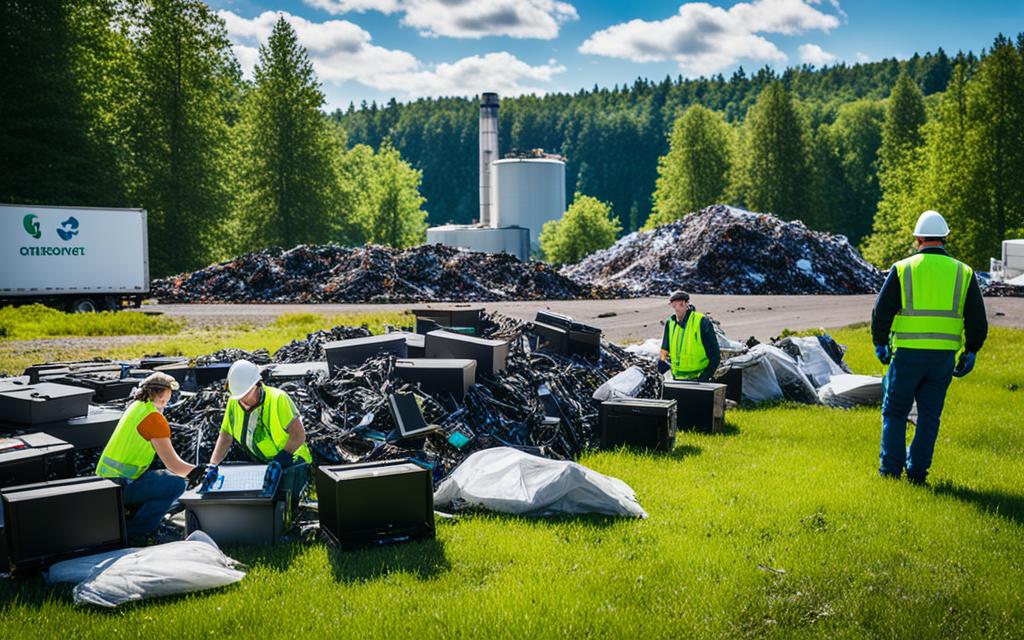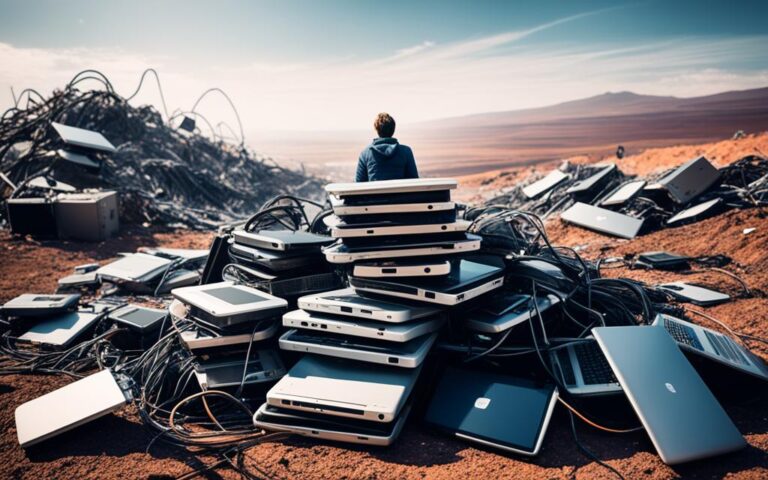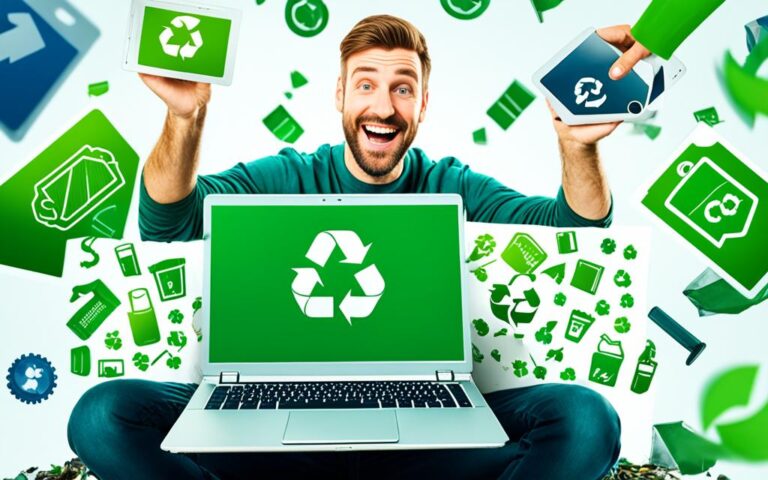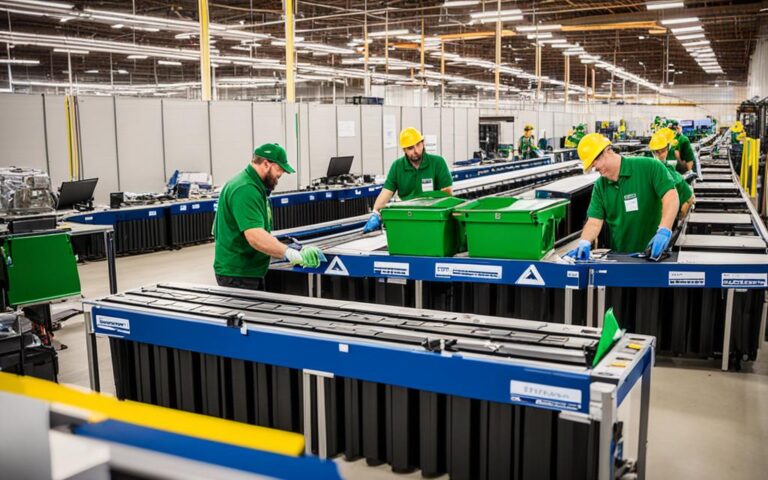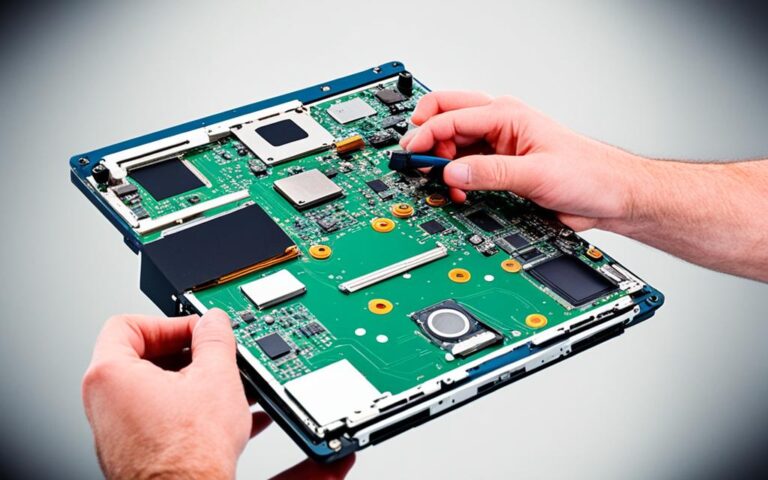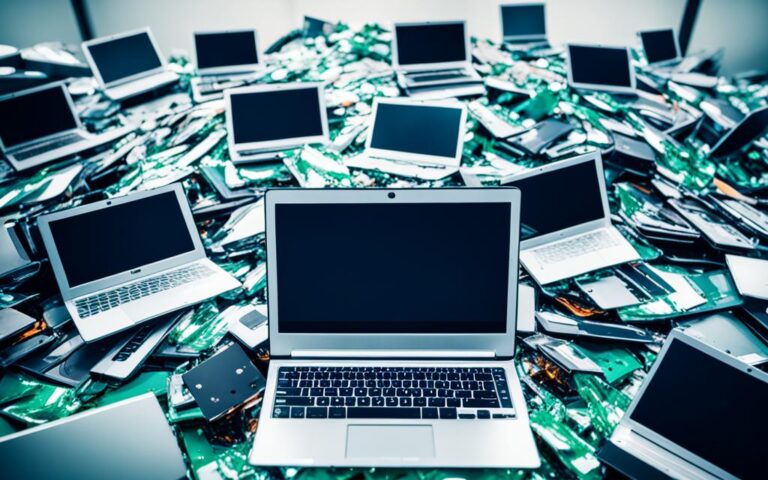The Benefits of Laptop Recycling for the Manufacturing Sector
Laptop recycling offers a range of benefits for the manufacturing sector. By reducing landfill space and preventing toxic waste, recycling IT equipment helps minimize the environmental impact of the industry. It also improves overall health by reducing the release of harmful toxins into the air and water. Additionally, recycling old devices leads to a reduction in manufacturing costs and energy consumption. Moreover, it ensures secure data disposal and provides an opportunity to donate old devices to charitable organizations.
As the manufacturing industry continues to prioritize sustainability, laptop recycling plays a crucial role in achieving these goals. The practice of recycling IT equipment offers numerous advantages that contribute to a greener and more responsible manufacturing sector. By diverting electronic waste from landfills and properly recycling it, manufacturers can significantly reduce their environmental footprint and promote a circular economy.
Reducing Landfill Space and Preventing Toxic Waste
Recycling IT equipment is crucial for reducing the amount of waste sent to landfills, helping to minimize the need for additional landfill space. When electronic waste, also known as e-waste, is improperly disposed of in landfills, it releases toxic substances into the environment, posing significant threats to both ecosystems and human health.
E-waste, such as IT equipment, contains various hazardous chemicals, including lead, mercury, beryllium, and cadmium. If not properly recycled, these chemicals can contaminate water sources and the air we breathe. The improper disposal of e-waste contributes to environmental pollution and exacerbates the release of harmful toxins into our surroundings.
By recycling old devices through specialized e-waste recycling facilities, we can effectively prevent these dangerous chemical toxins from being released into the environment. This significantly reduces the risk of harmful contamination and helps protect both the ecosystem and human well-being.
| Toxic Chemicals in IT Equipment | |
|---|---|
| Chemical | Hazardous Effects |
| Lead | Neurological damage, developmental issues |
| Mercury | Nervous system damage, harm to fetus |
| Beryllium | Lung cancer, skin disorders |
| Cadmium | Kidney damage, cancer risk |
By responsibly recycling our old IT equipment, we can protect the environment, preserve landfill space, and prevent toxic waste from polluting our surroundings. It is crucial to choose certified e-waste recycling services to ensure the proper handling and disposal of electronic devices, thereby promoting a sustainable future for all.
Improved Health and Reduced Manufacturing Cost & Energy Consumption
The chemicals present in electronic waste can have serious health implications for both humans and other living species. By recycling old devices, the release of these toxins into the air and water is minimized, resulting in improved health outcomes. Recycling IT equipment also offers significant cost savings for the manufacturing sector. Approximately 98% of old PCs can be recycled and reused, including components such as glass, keyboards, circuit boards, and batteries. By reusing materials from these components, manufacturing costs are reduced, and energy consumption is minimized.
| Benefits of Recycling Old Devices | Impact |
|---|---|
| 1. Reduction in manufacturing costs | Lower expenses for sourcing raw materials |
| 2. Energy consumption reduction | Decreased reliance on energy-intensive manufacturing processes |
| 3. Minimization of waste | Less environmental pollution and landfill space |
Secure Data Disposal and Charitable Contributions
When it comes to IT asset recycling, secure data disposal is a crucial consideration. The simple act of deleting files from a device is not enough to completely erase the data, leaving businesses vulnerable to data breaches and potential fines. To ensure peace of mind and compliance with GDPR regulations, it is essential to work with a professional IT disposal center like IT-Recycle.
By partnering with IT-Recycle, companies can confidently recycle their equipment, knowing that their data will be thoroughly destroyed and rendered unrecoverable. This level of data security mitigates the risk of confidential information falling into the wrong hands. Not only does proper data disposal protect sensitive data, but it also upholds the reputation and trustworthiness of the company.
Furthermore, IT asset recycling presents an opportunity for companies to make a positive impact on the environment and contribute to charitable causes. Instead of letting old devices end up in landfills, businesses can choose to donate them to charitable organizations. These organizations can repurpose the devices for schools, disadvantaged individuals, or even charity receptions.
By donating old devices, companies not only reduce electronic waste but also support charitable initiatives that benefit their communities. It’s a win-win situation, contributing to a good cause while reducing the environmental impact of electronic waste.
Benefits of Charitable Donations
| Benefits of Charitable Donations |
|---|
| 1. Reduced electronic waste |
| 2. Support for schools and disadvantaged individuals |
| 3. Positive contribution to the community |
| 4. Enhanced brand reputation |
By embracing secure data disposal and making charitable contributions, companies demonstrate their commitment to responsible IT asset recycling and sustainability. Not only do they protect sensitive information and avoid potential fines, but they also create a positive impact on the environment and support worthy causes within their local communities.
Conclusion
Laptop recycling plays a vital role in the sustainability of the manufacturing sector. Through reducing landfill space, preventing toxic waste, and improving health outcomes, it offers significant benefits for both the environment and the industry. Moreover, recycling old devices leads to reduced manufacturing costs and energy consumption, promoting economic efficiency.
Another crucial aspect of laptop recycling is secure data disposal. By partnering with a trusted IT disposal center like IT-Recycle, companies can ensure that their data is completely destroyed in compliance with GDPR regulations, mitigating the risk of data breaches and potential fines.
Additionally, laptop recycling provides an opportunity for companies to support charitable causes. By donating old devices to charitable organizations, these devices can be repurposed and benefit schools, disadvantaged individuals, or charity receptions.
In conclusion, by embracing laptop recycling and collaborating with IT-Recycle, companies in the manufacturing sector can contribute to sustainability efforts, make a positive impact on the environment, and enjoy the economic advantages of responsible recycling practices. To learn more about the benefits of laptop recycling and schedule a collection, visit IT-Recycle’s website.
FAQ
What benefits does laptop recycling offer for the manufacturing sector?
Laptop recycling offers a range of benefits for the manufacturing sector, including reducing landfill space, preventing toxic waste, improving health outcomes, reducing manufacturing costs and energy consumption, ensuring secure data disposal, and supporting charitable causes.
How does laptop recycling help reduce landfill space and prevent toxic waste?
By recycling IT equipment, the amount of waste sent to landfills is minimized, thereby reducing the need for additional landfill space. This helps prevent the release of harmful toxins into the environment, which can contaminate water and air if improperly disposed of.
What are the health benefits of laptop recycling for the manufacturing sector?
Recycling old devices helps minimize the release of harmful toxins into the air and water, resulting in improved health outcomes for both humans and other living species. By properly recycling IT equipment, the impact of chemicals such as lead, mercury, beryllium, and cadmium on the ecosystem and human health is minimized.
How does laptop recycling contribute to reducing manufacturing costs and energy consumption?
Approximately 98% of old PCs can be recycled and reused, including components such as glass, keyboards, circuit boards, and batteries. By reusing materials from these components, manufacturing costs are reduced, and energy consumption is minimized.
How does laptop recycling ensure secure data disposal?
Secure data disposal is crucial in IT asset recycling. By partnering with a professional IT disposal center like IT-Recycle, companies can ensure that their data is completely destroyed in accordance with GDPR regulations, providing peace of mind and avoiding potential fines.
Can old devices be donated to charitable organizations through laptop recycling?
Yes, donating old devices to charitable organizations allows them to be repurposed for schools, disadvantaged individuals, or charity receptions. This not only contributes to a good cause but also helps reduce e-waste.

